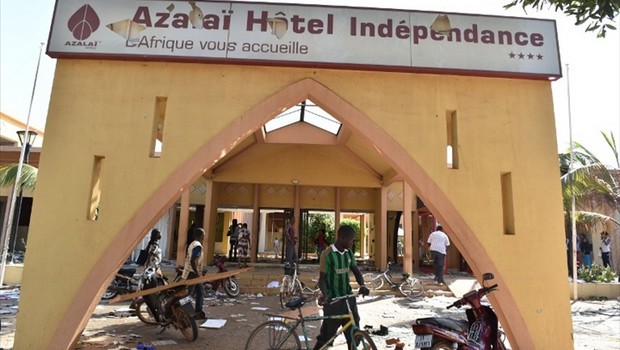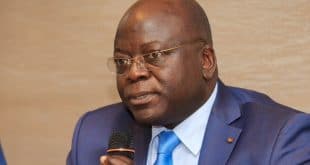The cultural sector of Burkina-Faso is not saved by the political crisis occurred in the country last week. The destruction of hotel infrastructures, the curfew decree and the climate of insecurity are not favorable for Burkinabe cultural promoters. In an interview granted to the colleagues from Burkina24.com, Désiré Ouédraogo, technical inspector of the services of the Ministry of Culture and Tourism of Burkina Faso, has regretted the slowing down of the cultural activities.
Already affected by the consequences of Ebola virus disease that rages in three countries of West Africa and the politico-military crisis in the North of Mali, the Burkinabe cultural sector henceforth has to face a political crisis occurring in the country some days ago.
After the demonstrations that forced the former president, Blaise Compaoré to resign from the head of the State, peace seems to be back in Ouagadougou and in the main cities of the country. However, the curfew decreed does not sound good for cultural promoters who were obliged postpone or cancel several cultural meetings.
« Activities can no more take place according to the established schedule. That is it only the case of Ouaga and a single event. Take for example the case of CITO where there is a new programming with plays to be performed from 8 pm; obviously, it is activities that were cancelled or postponed« , regretted Désiré Ouédraogo, executive for the Ministry of Culture of Burkina Faso.
According to the latter, the destruction of hotel infrastructures will have a negative impact on tourism. « In the field of tourism, there was certain number of breakage of hotels in Ouagadougou (Azalaï Hôtel, Jolly Hôtel, and Palace Hôtel) and Ouahigouya (Hotel de l’Amitié). It is very serious for the sector because it was already penalized double because of the Malian crisis and the Ebola virus pandemic« , he explained.
As Africa Top Success, reported it to you earlier, several international meetings supposed to be held in Burkina Faso are already either cancelled or postponed in order to avoid risks of contamination by Ebola virus disease. Such is the case of the Cycle Tour of Faso.
Original textby: Roger ADZAFO
 Africa Top Success Ils font l'Afrique
Africa Top Success Ils font l'Afrique









